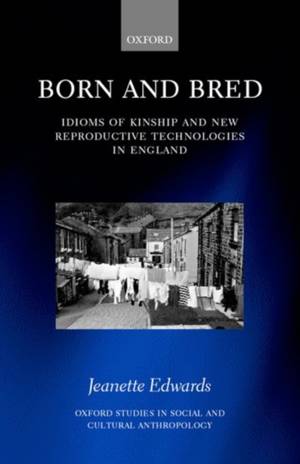
- Afhalen na 1 uur in een winkel met voorraad
- Gratis thuislevering in België vanaf € 30
- Ruim aanbod met 7 miljoen producten
- Afhalen na 1 uur in een winkel met voorraad
- Gratis thuislevering in België vanaf € 30
- Ruim aanbod met 7 miljoen producten
Zoeken
€ 407,45
+ 814 punten
Omschrijving
Born and Bred is an ethnography of Bacup in the north-west of England. At the heart of the cotton industry in the nineteenth century, this Lancashire town has undergone deep social and economic change during the twentieth, yet it remains a hive of social activity. The book focuses on the way in which the past continues to figure in people's talk about the place and about each other, but it questions the claim that such a preoccupation is simply due to nostalgia for better times. Narratives about the past, like narratives about the kind of place Bacup is, mobilize cultural understandings of kinship, which are also deployed when people talk about the implications of new reproductive technologies. Jeanette Edwards argues that kinship is resonant in the way in which residents of the town belong to pasts, places and persons. She challenges the idea that kinship is no longer an organizing principle in post-industrial Western society.
Specificaties
Betrokkenen
- Auteur(s):
- Uitgeverij:
Inhoud
- Aantal bladzijden:
- 280
- Taal:
- Engels
- Reeks:
Eigenschappen
- Productcode (EAN):
- 9780198233947
- Verschijningsdatum:
- 1/06/2000
- Uitvoering:
- Hardcover
- Formaat:
- Genaaid
- Afmetingen:
- 236 mm x 157 mm
- Gewicht:
- 595 g

Alleen bij Standaard Boekhandel
+ 814 punten op je klantenkaart van Standaard Boekhandel
Beoordelingen
We publiceren alleen reviews die voldoen aan de voorwaarden voor reviews. Bekijk onze voorwaarden voor reviews.











